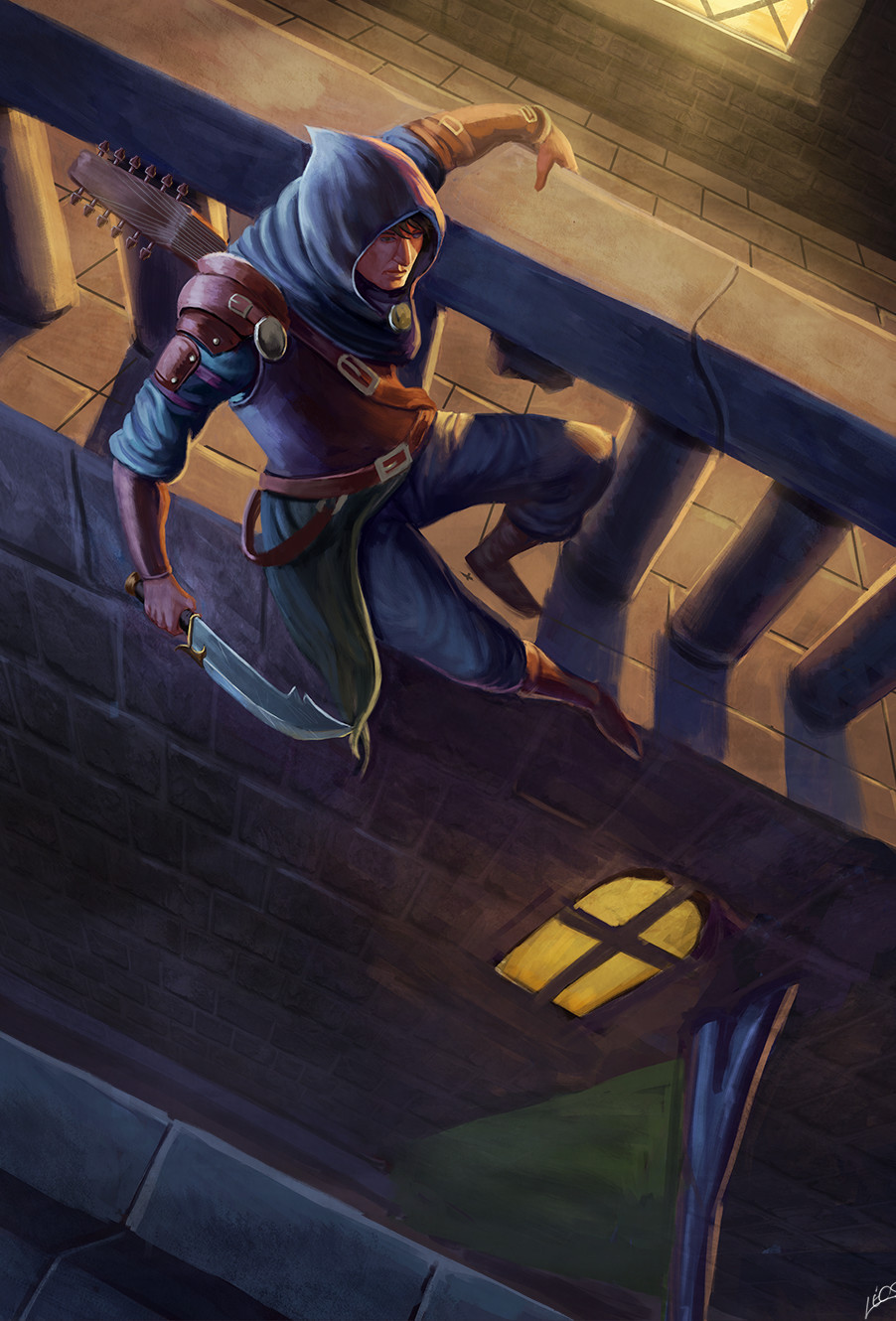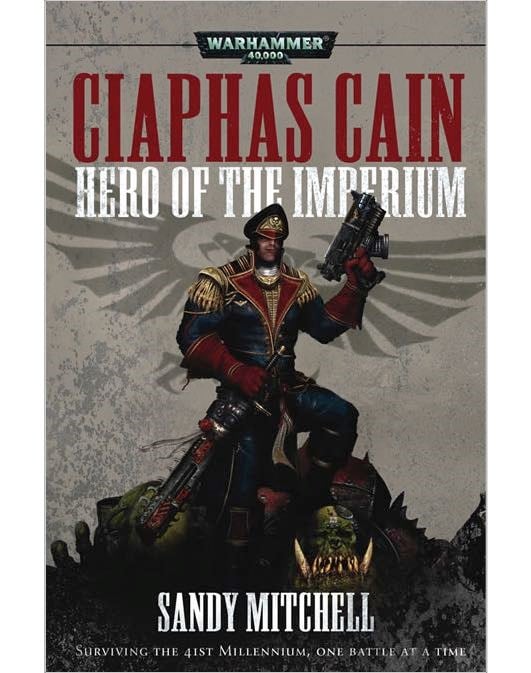The Bard is something of a staple of the tabletop. For better or for worse. Further, it is the subject of less than flattering blog posts and commentary. Not unreasonably.
 |
| From http://we-are-rogue.tumblr.com/post/156902093740/thief-and-bardo-rpg-dd-character-by-leonardo Yes, please do scale the side of a building whilst wearing a cumbersome, fragile lute on your back. Are you really going to play a jaunty melody when you reach the top? |
To take a brief left turn, recent years have seen a great deal of talk and print about media. Representation; exclusion; appropriate narratives - all, to some degree or the other, about power. Now, I do not propose try and convince you of any given position in this regard. But to bring up this given area of discussion is important.
The Bard, I propose, should not be thought of as a musician; a minstrel. The Bard should be thought of as a storyteller, accompanied by music or otherwise. The literal name harks back to storytellers, as I understand a bard. Let us reach back to the Early Medieval period in Europe: the Dark Ages. Christianity might be about, but there may not be a plethora of scriptoria for the production of many books - not that parchment and ink is free. Runestones are too heavy to hefted about the place. Therefore, even if this is not purely oral as a culture, lots of the cultural power and memory is preserved by a certain group.
This is quite glib, I suppose, historically or anthropologically. But it is to my mind it is a superior use of the Bard to magic songs. (There is an instance of good magic songs in The Kalevala - but this more suggests to me a wizard who needs to hit the bass notes in order to cast Magic Missile than a bard archetype).
Therefore, a few examples. We know what a good wizard is: Merlin. We know what a bad wizard is: Saruman. We know a good paladin is: Galahad. We know what a bad paladin is: Darth Vader. What of Bards? What is there other than Orpheus? But applying my schemes, consider the following.
The good bard Mavramorn told the tale of the great hero Restimar during the siege of the Castle Passarid by the forces of the Dread Legion. The might of the hero and his indomitable strength gave heart to the besieged forces and stopped the wizardry of the wicked Uvilas from tricking them into a surrender.
The evil bard Glozelle told the tale of the evil Phenris Wolf and his crocodile tear tricks to pray on the innocent heroine Erimon. By doing so at the Beruna Peace Conference, he flared up anti-appeasement sentiments and pushed the land into a long costly, avoidable war between the great powers.
(For those who like their Appendix N, consider the youth of Fritz Lieber's Fafhrd as a skald - which served him well in the story 'Lean Times in Lankhmar'.)
The storytelling powers of the Bard, in such circumstances is higher than we might think, given the availability of cinema and print. Consider the impact of a skilled storyteller (or, indeed, any performer) under such circumstances.
The Bard becomes, then, a repository of cultural lore (distinct from religious or magical lore or criminal underworld street smarts) and an effective diplomat. Rather than an embarrassing musician.
***
This might end there, but one more thing did occur to me. This kind of Bard, possessing this kind of storytelling potency only exists under a certain set of circumstances. The printing press, the cinema, the internet - rather get in the way.
But apart from an Early Medieval European or Early Medieval European inspired fantasy world, another role sprung up. Similar straightened circumstances, similar relative lack of information, similar hard times. Another time and place where something like this Bard idea might exist.
The Front Line. A propaganda officer.
 |
| Source. Pictured: A Bard. |
Consider it: a dearth of information; a man who tells you deeply affecting tales. The political officer, who is not there to command or fight or drive a tank. Stories, images, music designed to get the common soldier inspired and to keep them loyal. (Each time the Bard levels up, the Bureau of Military Morale delivers new and increasingly effective propaganda material!)
Quite a leap from effete minstrels to political officers, I know. But it's perhaps only a slight step if the Bard as cultural loremaster and storyteller takes centre stage.
 |
| Source. Pictured: Bard with points in Marksmanship and Swordplay. |
No comments:
Post a Comment